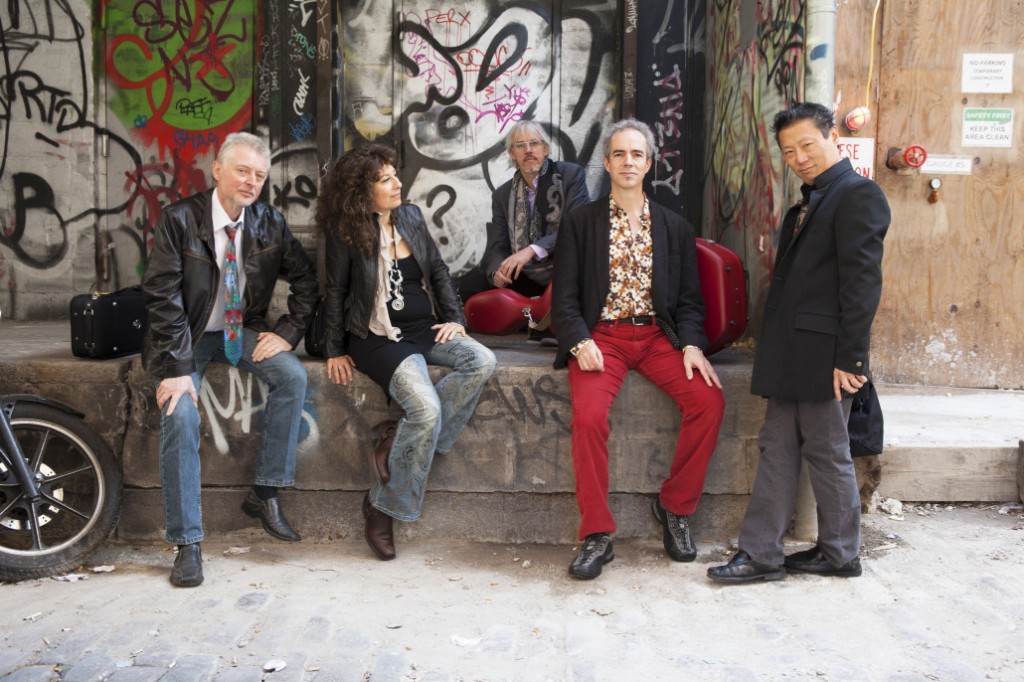Rebel takes a bracing look at the Enlightenment and its discontents
Two mainstays of New York’s classical community joined forces on Sunday to salute a bygone era that seems to be offering up new lessons for our own unsettled times.
The Enlightenment, a veritable big bang of inquiry and ideas, ended badly, of course, with all of 18th-century France sliding into violence and terror. So the tribute in both music and words to Europe’s great age of reason was heartfelt but also cautionary.
The virtuoso quintet Rebel performed “A Path to Enlightenment,” an enjoyable pairing of Baroque works with readings taken from the era’s leading lights. It was Bach and Burke, side by side, in the 41st season opener of the long-running presentation series Music Before 1800 at its serendipitous venue, Corpus Christi Church in Morningside Heights.
Joined by two collaborators on additional strings and percussion, and veteran actor Paul Hecht, who handled the oratory, Rebel (pronounced “Re-BEL” and named for the French composer Jean-Féry Rebel) played with grace and fervor, employing period instruments such as transverse flute, harpsichord and violoncello.
With the altar as a stage, and columns of stained blue glass as a backdrop, this troupe of eight conjured a lively imagining of the Enlightenment as both a flowering of possibilities and a prelude to disaster.
The program opened on an almost martial note, with percussionist Ben Harms performing a kind of summons on baroque timpani, before the musicians took up the nimble counterpoint of Bach’s Overture in B Minor. The highlight of the performance was the spirited interplay between flutist Matthias Maute and violinists (and Rebel co-directors) Jörg-Michael Schwarz and Karen Marie Marmer.
Originally from the Netherlands, the group relocated to New York and maintained a performing residency at Trinity Church in Lower Manhattan for 12 years, a span that encompassed the devastation of 9/11 and much of the recovery. Rebel turns 25 next year, and the players are as attuned to each other as one would expect, given musicians of their experience and dedication to a particular form.
The program traced the Baroque era from J.S. Bach to works by two of his sons, J.C. Bach and C.P.E. Bach. But of the twelve works Rebel performed Sunday, the most rewarding came from a less celebrated name and the longest work of the program. In the Sextet in G Major by English composer Steven Storace. Rebel sounded perfectly winsome in the opening Adagio, and impressively larger than their numbers in the blazing orchestral Allegro of this 20-minute epic.
The alternation between words and music was deft and mutually beneficial, with each shading and enhancing the other to deepen a mood that was equal parts wistful and wary. Hecht gave stately but unstuffy voice to writings of Burke, Voltaire, Rousseau and Kant, with some passages extolling human potential and some lamenting the waste of it.
A William Wordsworth meditation on the French Revolution —”Head after head, and never heads enough/for those that bade them fall” — gave way to a bittersweet Sonata for Keyboard and Violin by Jean-Fréderic Edelmann, who was dispatched by guillotine in 1794.
The sonata, with its quiet voicings and evocative pauses, was literally — and deliberately — cut short by the crack of a drum from near the church’s entrance. Percussionist Harms, reappearing with a snare to make a theatrical slow trek to the altar, to words from 18th Century German philosopher, Johann Gottlieb von Herder: “Touch not the flute when the drums are sounding around: when fools have the word, the wise will be silent.”
It was an unsettling note to close on — and a vivid reminder that in any age, idealism can curdle into extremism.







